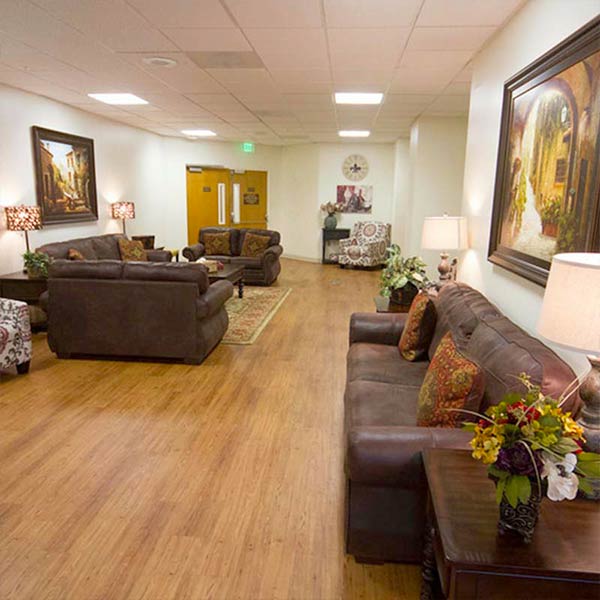Greenleaf Hospital provides effective treatment for men & women struggling with aggression. At Greenleaf, you can learn how to manage your symptoms to take back control.
Learn About Aggression
Understanding Aggression
Aggression is defined as any behavior that is hostile, destructive, and, in some cases, even violent. This term refers to a wide variety of behaviors that can result in physical and psychological harm to oneself, others, or objects in the environment around them. Aggressive behaviors can vary greatly from emotional regulation problems to severe, manipulative behaviors. Additionally, it can occur in a number of different ways including mentally, physically, or verbally. Types of aggression can include behaviors such as physically pushing or hitting someone, arguing, engaging in physical fights, and bullying. It should be noted that aggressive behaviors are not all physical; behaviors such as starting rumors, excluding others, and arguing can be just as damaging.
Causes
Causes of Aggression and Overly Aggressive Behavior
The development of aggressive behavior can be the result of many different factors, including genetic causes that have been inherited from parents as well as behaviors that have been learned through a series of repeated experiences. Additionally, certain types of mental health disorders or reactions to medications can cause aggression to develop. Some of the most common causes of aggression include:
Genetic: Research suggests that there may be a genetic link to aggressive outbursts. In a study conducted on mice, the results showed that those mice who lacked a certain gene were far less aggressive than the mice that did possess that particular gene. This gene is also present in human beings, which seems to support the idea of a genetic link to aggression.
Environment: It is thought that certain environmental factors, such as living in poor neighborhoods with high crime rates or family dysfunction, can both lead to the onset of aggressive, problematic behaviors. Additionally, individuals who possess difficult temperaments are also at an increased risk.
Medications: Certain types of medication such as those prescribed at our aggression treatment center have the ability to cause a person to act in an aggressive manner. For some individuals, prescriptions pills, or even some over-the-counter medications, can cause irritability, nervousness, or other aggression-causing feelings.
Mental health disorders: There are a number of different mental illnesses that can cause a person to experience inappropriate aggressive reactions. Psychiatric disorders that are often associated with an elevated risk of aggressive behavior include:
- Attention-deficit/hyperactivity disorder (ADHD)
- Posttraumatic stress disorder (PTSD)
- Bipolar disorder
- Conduct disorder
- Oppositional defiant disorder (ODD)
- Substance use disorders
- Schizophrenia
- Borderline personality disorder (BPD)
- Intermittent explosive disorder (IED)
Effects
Long Term Effects of Aggression
If aggressive behaviors are not properly addressed and treated, they can lead to a number of serious negative consequences in all areas of an adult’s life. This is why it is important that treatment be sought at a hospital that specializes in aggressive behavior as soon as possible to prohibit such devastating consequences from occurring. Complications that often result from aggressive behaviors can include physical, psychological, and even legal ramifications. Examples of such consequences may include:
- Poor interpersonal relationships
- Delinquency
- Substance abuse and addiction
- Poor adjustment capabilities
- Occupational difficulties
- Social isolation
- Legal problems, including incarceration
- Conduct problems
- Divorce or demise of other types of romantic relationships
- Negative health complications
Treatment
Treatment Options for Aggression
As one of the leading treatment centers in Valdosta that treats aggression, we provide a safe, structured environment for adults who are struggling with aggressive behaviors and other mental health concerns. Treatment for aggression is done on an individual basis because the reason for this type of behavior can be the result of many different factors. The overall goal of the treatment process is to help individuals learn how to control their anger in more appropriate ways, become responsible for their actions, and learn to accept the consequences of those actions.
Currently, there are a number of different treatment options for aggression that include identifying and treating the cause of this inappropriate behavior. Through our inpatient treatment, clients will participate in a number of therapeutic methods, such as group and individual therapy, which will address any underlying mental health conditions that may be causing the aggressive behavior. Additionally, clients will be seen regularly by our psychiatrist for any medication they may need. Other methods that may be used in treatment include family therapy, case management, and recreational therapy, all of which can help our clients develop the skills needed to control their behavior and continue to be successful upon leaving treatment at our hospital.








